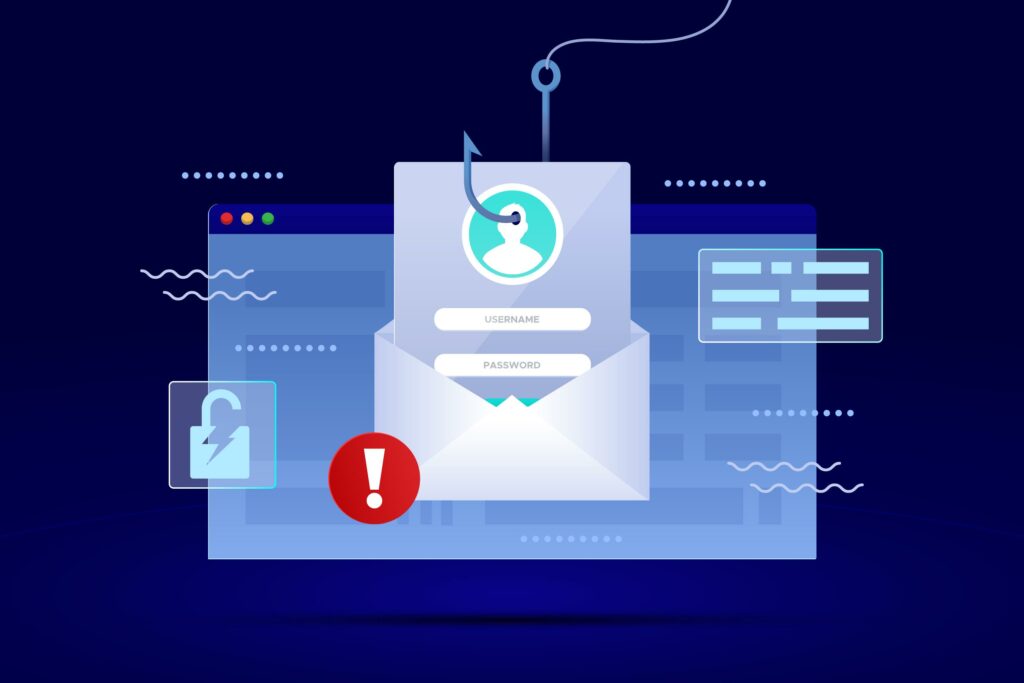Let’s explore the essential aspects of ensuring your email marketing and GDPR efforts are aligned. Whether you’re a marketer, business owner, or simply someone interested in understanding the intersection of email marketing and data protection laws, this guide provides comprehensive insights and actionable tips to navigate this critical aspect of digital marketing. Let’s dive in and demystify the complexities of GDPR compliance in email marketing!
Understanding GDPR
GDPR, or General Data Protection Regulation, is a legal framework designed to provide guidelines for the collection and processing of personal information of individuals within the European Union (EU). Its primary goal is to empower individuals with control over their personal data and simplify the regulatory environment for international businesses by standardizing the rules within the EU. It’s important for businesses to understand and comply with GDPR requirements when handling customer data, as non-compliance can lead to significant fines. By implementing GDPR compliance measures, businesses not only avoid penalties but also demonstrate a commitment to protecting customer privacy and data security, ultimately earning their trust.
What is GDPR?
GDPR is designed to protect the privacy and personal data of EU citizens by regulating how organizations collect, use, and process this information. It applies not only to businesses within the EU but also to those outside the EU that offer goods or services to individuals in the EU or monitor their behavior. The regulation encompasses various aspects such as obtaining consent for data processing, notifying authorities of data breaches, appointing Data Protection Officers, and conducting impact assessments. In essence, GDPR empowers individuals to have more control over their personal data while imposing strict obligations on organizations handling such data. This comprehensive framework aims to ensure that personal data is handled with the utmost care and respect, providing individuals with greater transparency and control over the use of their information.
Key principles of GDPR
Transparency plays a crucial role in GDPR, as it emphasizes clear and open communication with individuals regarding the use and processing of their data. This principle ensures that people are fully informed about how their information will be handled, instilling a sense of trust and confidence. Additionally, the ‘Right to Access’ empowers individuals to confirm whether their personal data is being processed, providing them with greater control over their information. Data minimization is also a key focus, highlighting the importance of organizations only collecting and processing data that is strictly necessary for a specific purpose. Furthermore, GDPR’s emphasis on ‘Accountability’ underscores the responsibility of organizations to demonstrate adherence to its principles, further bolstering data protection and privacy measures.
Impact on Email Marketing
Email marketing strategies must align with GDPR regulations to guarantee the legal processing of personal data. As per GDPR requirements, email marketers need to secure explicit consent from individuals prior to sending them marketing emails. Moreover, data subjects hold the right to access, rectify, and erase their personal data, thereby influencing how email marketers handle their subscriber lists. It’s crucial to note that non-compliance with email marketing and GDPR may lead to substantial fines and harm the brand’s reputation, making it imperative for businesses to adhere to these regulations diligently.
Consent requirements for email marketing
Under GDPR, email marketers are obligated to clearly articulate the purpose of data processing and acquire explicit consent for each distinct objective, ensuring that individuals are fully informed and aware of how their data will be used. Consent for email marketing must be freely given, specific, and unambiguous, necessitating a clear affirmative action from the data subject to signify their agreement. Additionally, email marketers should offer simple opt-out mechanisms as part of GDPR’s stipulation for individuals to revoke their consent at any time. It is essential for email marketers to meticulously record and retain evidence of consent as a means to showcase adherence to GDPR regulations, underscoring the significance of robust documentation in ensuring compliance.
Data processing and storage limitations
GDPR imposes strict restrictions on transferring personal data outside the EU, placing the onus on email marketers to ensure that any such transfers meet specific criteria or safeguards. It’s essential for email marketers to implement necessary measures and processes to keep personal data accurate and up to date, in compliance with GDPR regulations. Furthermore, the principles of data minimization under GDPR impact how long email marketers can retain personal data before securely deleting or anonymizing it, emphasizing the need for careful management of subscriber information. In addition, GDPR requirements highlight the essentiality of security measures such as encryption and pseudonymization for protecting personal data within email marketing databases, underscoring the critical role of robust security practices in safeguarding customer information.
Compliance Strategies
To ensure compliance with GDPR regulations, it’s crucial to obtain explicit consent from your subscribers for your email marketing efforts. Implementing a clear and easily accessible process for managing consent preferences will empower subscribers to update their preferences at any time, aligning with GDPR’s emphasis on individual data control. Regularly reviewing and updating data security measures is essential to protect subscriber information and adhere to the latest GDPR requirements. Additionally, considering regular audits to assess the effectiveness of compliance strategies and making necessary adjustments will further strengthen your approach to GDPR compliance in email marketing.
Obtaining and managing consent
In order to comply with GDPR regulations, it is essential to provide clear and specific information about the purpose of collecting subscriber data and obtain explicit consent for each intended use. Additionally, offering granular options for subscribers to choose their preferred communication channels and types of content gives them greater control over their consent preferences. It’s crucial to maintain detailed records of consent obtained from subscribers, including the time, method, and purpose of consent to demonstrate compliance if required. Furthermore, regularly communicating with subscribers about their consent options and providing easy methods for them to manage their preferences is key to upholding email marketing and GDPR compliance.
Data security measures
In accordance with GDPR’s data security requirements, it is crucial to encrypt all sensitive subscriber data to safeguard it from unauthorized access or breaches. Adding an extra layer of security, implementing multi-factor authentication for accessing subscriber data systems is essential to mitigate potential threats. Additionally, clear protocols for responding to data breaches must be established, including timely notification to relevant authorities and affected individuals as per GDPR guidelines. Moreover, conducting regular awareness programs and training employees on data security best practices will further enhance the protection of subscriber data and ensure compliance with GDPR regulations.
Consequences of Non-Compliance
Non-compliance with GDPR in email marketing can have serious repercussions for organizations. It could lead to hefty fines and penalties from regulatory authorities, along with the potential for legal consequences such as litigation and prosecution. Additionally, failure to comply with GDPR requirements can inflict severe damage to a business or brand’s reputation, resulting in the loss of customer trust and loyalty. The negative publicity arising from non-compliance could have long-term effects on the overall success and growth of an organization, making it crucial for businesses to prioritize GDPR compliance in their email marketing practices.
Fines and penalties
Violations of GDPR regulations in email marketing can lead to severe financial consequences, including fines of up to €20 million or 4% of the company’s global annual turnover, whichever amount is higher. In addition to these hefty fines, non-compliant businesses may face penalties such as data protection audits and temporary or permanent bans on data processing activities. The financial implications of non-compliance extend beyond just fines, potentially impacting the overall profitability and sustainability of an organization. Furthermore, individuals affected by non-compliant email marketing practices have the right to seek compensation for damages incurred, adding to the financial burden on non-compliant businesses.
Reputation damage
Non-compliance with GDPR in email marketing can have far-reaching repercussions for businesses. Tarnishing a brand’s reputation through non-compliant practices can greatly diminish customer confidence and loyalty, impacting market position and competitive advantage. Rebuilding trust after reputational damage is a challenging endeavor, requiring significant resources. Furthermore, the erosion of consumer trust resulting from non-compliant email marketing practices can directly hinder business growth and sustainability, leading to reduced sales and long-term implications for the organization’s success.
Conclusion
Understanding the General Data Protection Regulation (GDPR) is essential for businesses engaging in email marketing. Complying with GDPR’s consent requirements, data processing and storage limitations, and implementing effective compliance strategies are critical to avoid severe consequences of non-compliance. Obtaining explicit consent, managing subscriber preferences, and ensuring data security through encryption and multi-factor authentication are key components of GDPR compliance in email marketing. The potential fines, penalties, and reputation damage resulting from non-compliance highlight the significance of prioritizing GDPR adherence. By integrating GDPR principles into email marketing practices, businesses can mitigate risks and uphold customer trust, loyalty, and overall brand reputation.


